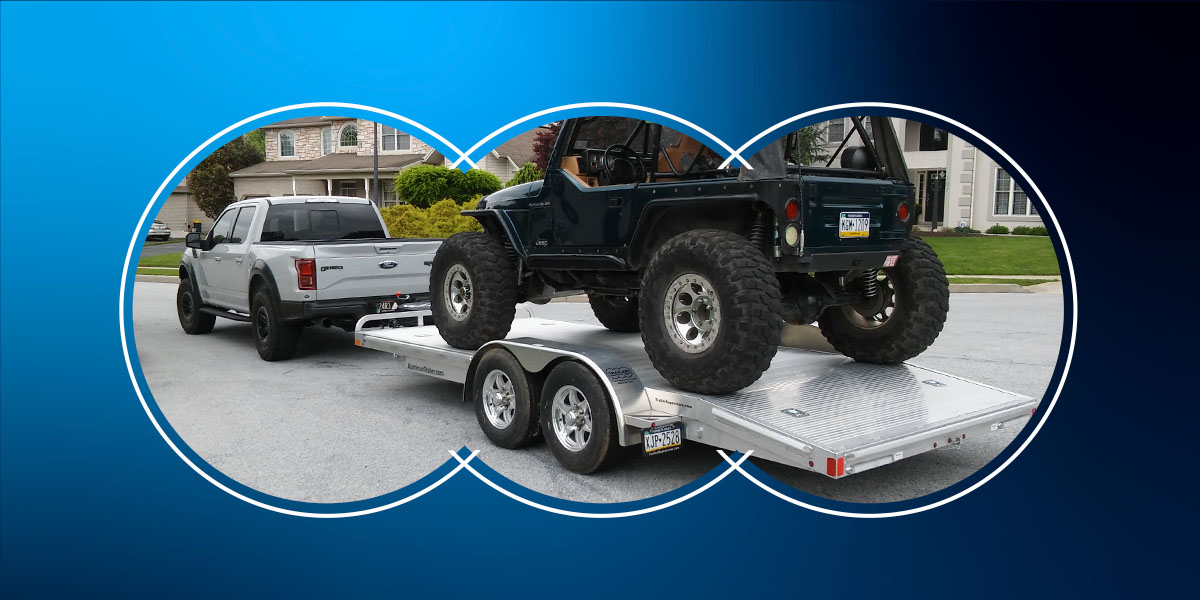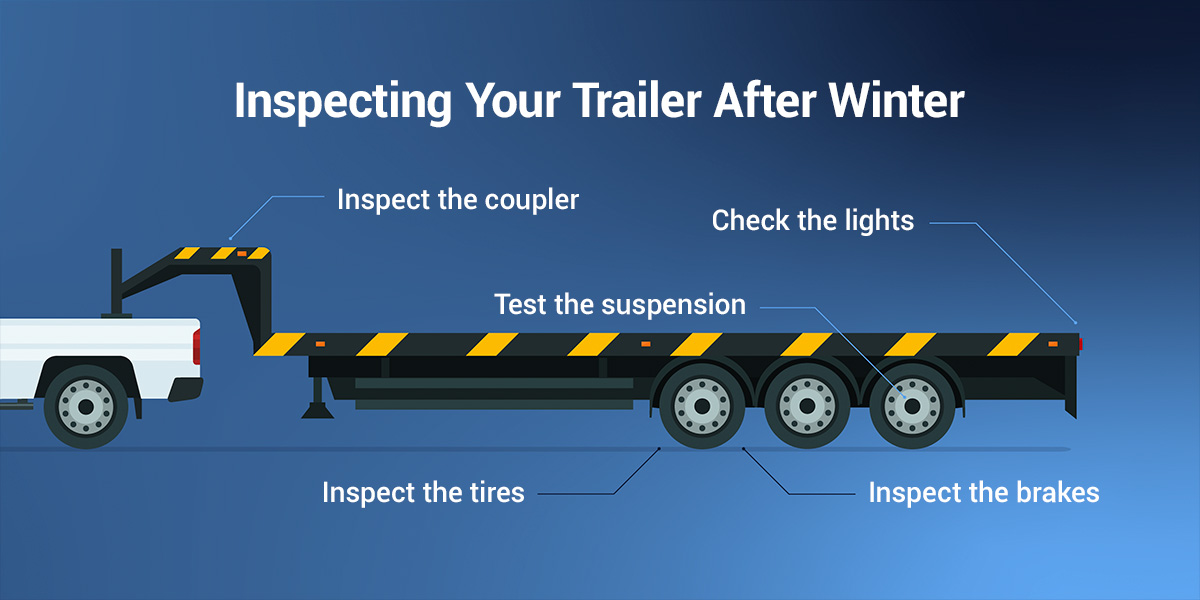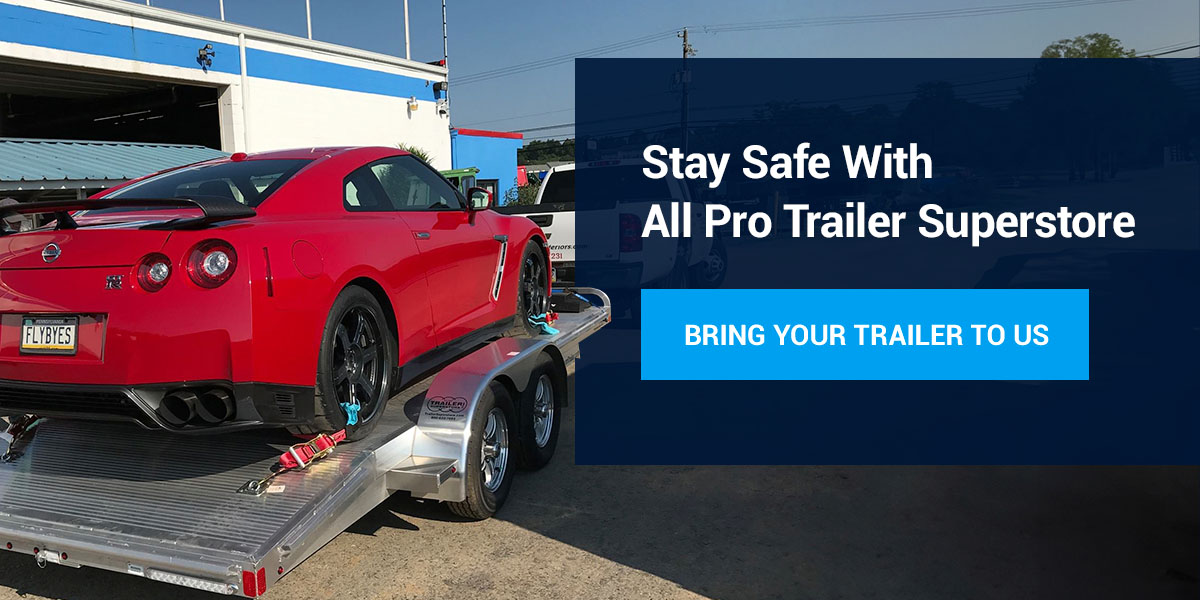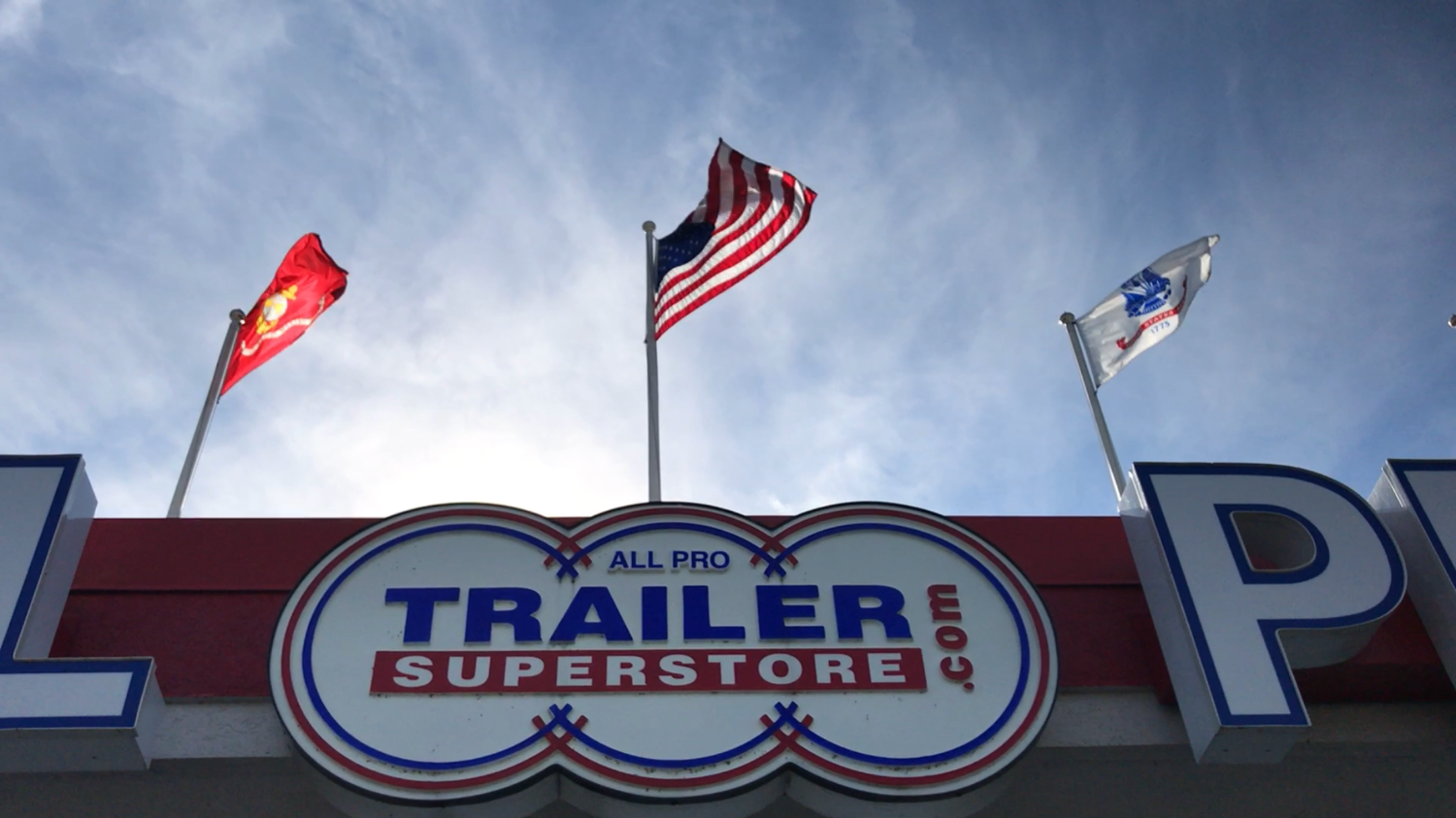Spring Trailer Readiness: Preparing Your Trailer for Hauling Season
Apr 12, 2016Last Updated on September 30, 2024 by allprotrailersuperstore
Last Updated on September 30, 2024 by allprotrailersuperstore
The spring has sprung and that means it’s time to get outside and soak up the sun! Whether you’re a weekend warrior with a hefty to-do list, making plans to tow your ATV or you run a landscaping company, you probably will be gearing up for some heavy hauls this season. With that said, majority of us will be hooking up our equipment trailers to put them to work but before we take off for our first haul, let’s review some of the things you need to do on this springtime check up guide!
Inspecting Your Trailer After Winter
When spring arrives, you want your trailer to be ready for the warmer weather. Winter can be hard on your trailer — salt, snow and cold can all lead to wear and tear. With a thorough trailer inspection, you’ll make sure your rig can handle anything the new year brings. Here’s a quick post-spring checklist to show you how to inspect a trailer:
- Inspect the tires: If your trailer has been sitting in storage or in your driveway all winter long, it’s a great idea to inspect the tires. Grab your tire pressure gauge and check the levels of your tires! If the pressure is too low, it can jeopardize your control over the trailer and cause the tires to wear unevenly, so be sure to add the appropriate amount of air to the tires as recommended by the manufacturer. Additionally, visually inspect the tires for wear because you’ll want to make sure they are in road-worthy condition. If they look slick and bald, replace them immediately.
- Inspect the brakes: If your trailer came equipped with brakes, give them a thorough examination. You may need to replace the brake pads if they are worn and ensure that the brake lines are in good working condition.
- Check the lights: Connect the trailer components to the electrical plugs on your vehicle to test the lights. Make sure all the lights are properly illuminating from the blinkers to the stop lights to the side markers. Replace any burnt-out bulbs so you have all your lights working again.
- Test the suspension: If the trailer is sitting unusually low, you may have an issue with the suspension. Make sure all the suspension components are in working condition before loading the trailer because you will not want it to buckle under the pressure.
- Inspect the coupler: The coupler is what attaches the trailer to your vehicle and you want to make sure that it’s in good shape. A worn out coupler that has twisted or bent can cause trouble down the road.
Essential Maintenance Tasks
After your winter inspection, you’ll need to complete some essential maintenance to keep your trailer in optimal condition, prevent problems and reduce your trailer-related expenses. Perform these tasks after a long winter to help your trailer perform at its best:
- Lubricate moving parts: Moving parts on a trailer need regular lubrication to prevent friction and damage. Go over brake caliper pins, hinges, couplers, latches and other moving parts to help them stay in good condition. Choose a high-quality trailer lubricant to prevent corrosion and rust.
- Check your brake system: Your brake system needs extra attention. Trailer brakes are essential for staying safe while using your trailer. Look at your brake pads and disc for wear, replacing them as needed. Check your brake fluid levels and top them to keep braking smooth. Finally, inspect the brake lines for any leaks and damage.
- Inspect wheel bearings and suspension: Remember your wheel bearings and suspension when performing maintenance. If you see any damage or wear, you might need to replace those parts. Make sure your bearings are lubricated according to the manufacturer’s instructions.
Cleaning and Protective Measures
Winter comes with road salt, slush, mud and debris. After winter, you should clean off your trailer to help protect it from springtime weather. With attentive cleaning and careful protective measures, you can help reduce trailer wear and tear year-round. Protective coatings go on your trailer after cleaning to help keep dirt and ultraviolet (UV) rays from causing premature trailer wear. Here’s how to clean off your trailer and protect it from further wear:
- Use mild detergent and water to scrub your trailer.
- Take a sponge or microfiber cloth and wash off any dirt, grime and debris. Make sure to wash the undercarriage and wheel wells.
- Thoroughly rinse your trailer with water to get rid of soap residue.
- Apply a sealant or wax designed for trailer use according to the instructions.
- Cover all painted surfaces with the sealant to keep water, UV rays and dirt from building up on your trailer.
Once you have thoroughly inspected your trailer for roadworthiness, you can set it up for work as long as it’s in good working condition!
Stay Safe With All Pro Trailer Superstore
While inspections, maintenance and cleaning are essential for protecting your trailer, they can be time-consuming to complete on your own. With trailer inspection services from All Pro Trailer Superstore, you can cut some of that time down. If you’re in Mechanicsburg, Pennsylvania, bring your trailer to us for professional trailer inspections. We’ll help you make sure your trailer passes state requirements while helping it last for years. Check out our full range of trailer services and see the difference All Pro Trailer Superstore can make — schedule your service today!





